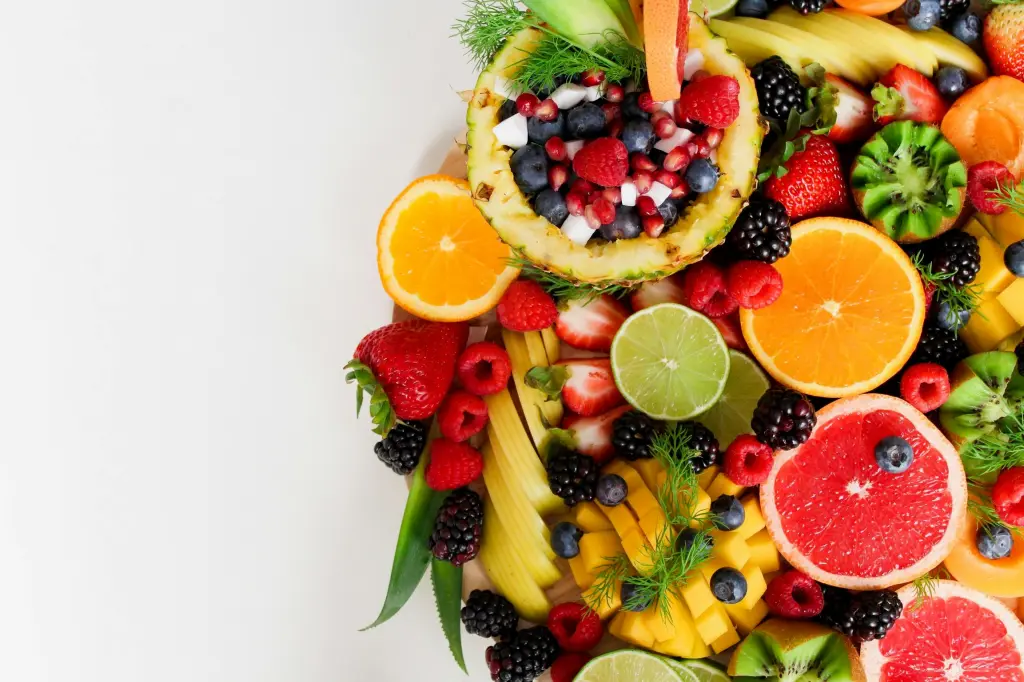What Experts Say
When it comes to nutrition, there’s no shortage of misinformation and myths that circulate, often leading to confusion about what to eat and what to avoid. These myths can shape people’s eating habits, sometimes in ways that are not beneficial to their health. To set the record straight, let’s debunk some of the most common nutrition myths and see what experts say.
Myth 1: Carbs Are Bad for You
Fact: Carbohydrates have been wrongly demonized in recent years, largely due to the popularity of low-carb diets like keto and Atkins. While it’s true that refined carbohydrates (such as white bread, pastries, and sugary snacks) can contribute to weight gain and poor health, not all carbs are bad. In fact, carbohydrates are the body’s primary energy source, especially for the brain and muscles.
Expert Opinion: Registered dietitian Nancy Clark states, “Complex carbohydrates like whole grains, fruits, vegetables, and legumes are essential for providing energy, fiber, and essential vitamins and minerals. Cutting them out entirely can lead to nutrient deficiencies.” The key is to focus on high-quality, whole carbohydrates rather than highly processed ones.
Myth 2: You Need to Detox Your Body with Special Diets or Juices
Fact: The idea that you need to “detox” your body with juice cleanses, detox teas, or special diets is a persistent myth. Your body is designed to detoxify itself naturally through the liver, kidneys, lungs, and skin. These organs work together to eliminate waste and toxins without the need for a special detox regimen.
Expert Opinion: Dr. Michael Smith, medical director at WebMD, explains, “There’s no scientific evidence that detox diets or juices help the body remove toxins faster or more effectively. In fact, many detox programs can leave you deprived of essential nutrients, leading to fatigue and other health issues.” Instead of detox diets, focus on eating a balanced, nutrient-rich diet that supports your body’s natural detoxification processes.
Myth 3: Eating Fat Makes You Fat
Fact: For years, dietary fat was blamed for weight gain, leading to a surge in low-fat and fat-free products. However, research has since shown that fat is an essential nutrient and does not necessarily lead to weight gain. In fact, healthy fats play important roles in brain health, hormone production, and nutrient absorption.
Expert Opinion: According to Harvard nutrition expert Dr. Walter Willett, “It’s not fat that makes you gain weight, but excess calories. Healthy fats from sources like avocados, nuts, seeds, and olive oil are crucial for a balanced diet. Trans fats and an excess of saturated fats are the real culprits you should watch out for.” The key is moderation and choosing healthy fats over processed or fried foods.
Myth 4: Gluten-Free Diets Are Healthier for Everyone
Fact: Gluten-free diets are necessary for people with celiac disease or gluten sensitivity, but they aren’t inherently healthier for everyone. In fact, many gluten-free products can be lower in fiber and nutrients compared to their whole-grain counterparts, leading to a less balanced diet.
Expert Opinion: Dr. Alessio Fasano, a leading expert in celiac disease, notes, “Unless you have a medical condition that requires you to avoid gluten, there’s no evidence that going gluten-free will improve your health or aid in weight loss. Whole grains that contain gluten, like wheat, barley, and rye, are excellent sources of fiber, vitamins, and minerals.”
Myth 5: You Should Eat Small, Frequent Meals to Boost Metabolism
Fact: The idea that eating small, frequent meals throughout the day will “boost your metabolism” and help with weight loss has been widely promoted. While eating smaller meals may help with hunger management and prevent overeating for some people, there’s no scientific evidence that it increases metabolism or calorie burn significantly.
Expert Opinion: According to dietitian Jill Weisenberger, “Meal frequency is a matter of personal preference. Some people thrive on three larger meals, while others feel better eating smaller meals throughout the day. What’s important is the overall quality and balance of the food you’re consuming, not necessarily how often you eat.” The focus should be on listening to your body’s hunger cues and eating nutrient-rich meals.
Myth 6: All Calories Are Equal
Fact: While a calorie is technically a unit of energy, not all calories are created equal when it comes to their effect on the body. Calories from different food sources—like protein, fats, and carbohydrates—are processed differently by the body and can have varying effects on metabolism, hunger, and weight gain.
Expert Opinion: Dr. David Ludwig, a nutrition professor at Harvard, explains, “Calories from processed foods high in sugar and unhealthy fats can trigger more fat storage and cravings, while calories from nutrient-dense whole foods like vegetables, lean proteins, and healthy fats can support metabolism, keep you full longer, and help regulate body weight.” Focusing on nutrient quality rather than calorie quantity is a more effective approach for maintaining a healthy diet.
Myth 7: Late-Night Eating Causes Weight Gain
Fact: It’s not the timing of your meals that leads to weight gain, but rather the total amount of calories consumed. If you eat more calories than you burn, regardless of the time of day, you’re likely to gain weight. However, late-night eating can sometimes lead to poor food choices, such as snacking on processed or sugary foods.
Expert Opinion: According to the American Heart Association, “Eating late at night doesn’t automatically cause weight gain, but it can contribute if it leads to overeating or poor food choices. It’s more about what and how much you eat rather than when you eat.” If you’re prone to late-night snacking, focus on choosing healthier options like fruits, vegetables, or nuts.
Myth 8: Fresh Produce is Always Healthier Than Frozen
Fact: While fresh fruits and vegetables are often seen as the healthiest option, frozen produce can be just as nutritious. In fact, frozen fruits and vegetables are often picked at peak ripeness and flash-frozen to preserve their nutrients, meaning they can sometimes contain more vitamins and minerals than fresh produce that has been sitting on store shelves for days.
Expert Opinion: Dietitian Amy Gorin says, “Frozen fruits and vegetables are a great alternative to fresh, especially when out of season. They retain their nutrients, are more affordable, and have a longer shelf life.” The takeaway? Don’t hesitate to use frozen produce to meet your daily fruit and vegetable needs.
Myth 9: You Must Drink 8 Glasses of Water a Day
Fact: The “8 glasses a day” rule is widely believed but isn’t based on scientific evidence. Water needs vary from person to person, depending on factors like body size, activity level, climate, and diet. You also get water from foods, especially fruits and vegetables.
Expert Opinion: The Institute of Medicine suggests that men need about 3.7 liters (125 ounces) of total water per day, and women need about 2.7 liters (91 ounces), but this includes water from all beverages and food. Registered dietitian Rachel Berman notes, “Listen to your body’s thirst cues, and drink when you’re thirsty. Water-rich foods like cucumbers, watermelon, and oranges can also help keep you hydrated.”
Conclusion: Seek the Truth Behind Nutrition Claims
In the age of social media and fast-spreading information, it’s easy to fall for nutrition myths that promise quick results. However, expert advice consistently shows that a balanced, varied diet focused on whole foods is the key to long-term health. By debunking these common myths, you can make better-informed decisions that align with your nutritional needs and lifestyle. Always consult a registered dietitian or nutrition expert if you’re unsure about any specific dietary advice.








